#yorkists
Text
Only death can pay for life...
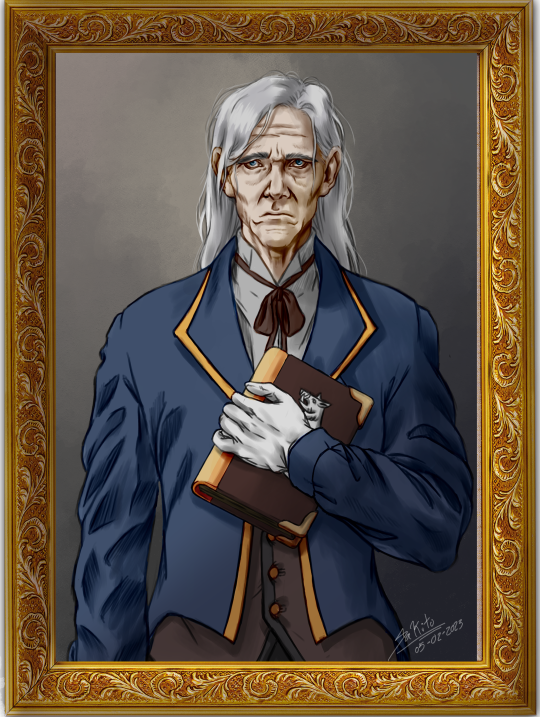
Caius Tyrrell, Lord of Sorrow’s End by Isaac Villacres
Feel free to like or reblog but please do not repost! All rights reserved.
#art for mistland#art#fantasy art#character art#character design#writers on tumblr#artists on tumblr#tales from mistland#caius tyrrell#gothic#alternate history#richard iii#wars of the roses#james tyrrell#plantagenets#tudors#battle of bosworth#henry vii of england#yorkists#lancastrians
25 notes
·
View notes
Link

Despite Henry IV seizing back the throne in 1470, the War of the Roses certainly were not over: Yorkist forces defeated the Lancastrians at the Battle of Barnet in 1471 to restore Edward IV.
#history#historyfiles#england#english history#britain#british history#anglo-saxon#plantagenet#house of plantagenet#yorkists#house of york#wars of the roses
4 notes
·
View notes
Note
It is said that many York parties began to support Henry Tudor after he announced that he would marry Elizabeth. How did they support him? Is there a York party in Tudor army?
First, Yorkists supported, or at least were allies with Henry Tudor before his solemn promise to marry Elizabeth of York at Christmas 1483. This announcement didn't trigger an immediate wave of support and merely confirmed a well-known plan.
They supported Henry mainly by giving him troops and their personal services. I don't think we can say there is 'a York party' or even ' a Tudor army' in 1485. The overwhelming majority of Englishmen around Henry in 1485 were Yorkists. It's better to say that there are remnants of a Lancastrian faction in Henry's army IMO (Oxford, Pembroke, etc...).
1 note
·
View note
Text
I love that both Elizabeth Woodville and Elizabeth of York had grander coronations than their husbands <3
#This is especially true in EW's case as she got a formal presentation at Reading Abbey as well#which seems to have been more akin to a king's (Edward's own) acclamation than any queenly ritual#I also just read that EW's coronation was also the only Yorkist coronation to be celebrated with jousting#so that's fun <3#and then you have people who claim Elizabeth of York's coronation was purposely delayed because Henry wanted to undermine her#Yeah for sure. That's definitely why he gave her a coronation that was grander than his own. That definitely makes sense.#elizabeth woodville#elizabeth of york#my post#queue
41 notes
·
View notes
Note
Seeing your views on Margaret of Anjou, I was told that Margaret of Anjou was firm, brave, but too radical, revengeful to the enemy and extreme political measures, which led to her failure. I want to know your views on the reasons for her failure?
Hi, sorry this took so long! I've been busy and this got very long. The short answer to all three, however, is that she had a shit-ton of bad luck.
The slightly extended version of is:
The Treaty of Tours which brought her to England had terrible terms for the English and thus terribly unpopular. As the face of the treaty, she was unfairly blamed for.
England was losing the Hundred Years War, badly. Her marriage was meant to bring peace but the only peace to be gained was through defeat and capitulation. Margaret was blamed for failing to live up to unrealistic expectations.
There was something of a succession crisis, the long wait for Margaret to conceive and give birth to an heir did nothing to easeit and only added to her unpopularity.
The long wait for an heir meant there was fertile ground for rumours and gossip, specifically the idea that she was an adulteress and Edward of Lancaster a bastard.
Henry VI's sudden mental breakdown, (probable) limited recovery and imprisonment left Margaret as the figurehead of Lancastrian rule and resistance. It made her the target for Yorkist propaganda attacks.
Following the Battle of Towton, the Lancastrians were in a weak position to negotiate with potential allies, meaning they made great concessions that were then seized upon by Yorkists to turn the general public against the Lancastrian side.
Severe weather hampered the Lancastrians on at least three occasions: Towton, Barnet and Margaret's return to England in 1471.
She lost. Yorkist rule continued to denigrate her and the Tudors weren't interested in challenging that idea.
Want more detail?
The Problem of Determining Personality
To start with, we don't know a whole lot about Margaret's personality. We don't know a whole lot about any medieval individual's personality, the evidence simply isn't there to tell us about their personal thoughts beyond brief flashes of insight. It's a fraught issue, as Rosemary Horrox points out, with reference to Margaret herself.
We also have to contend with the layers and layers of propagandistic narratives. Again, this is true for almost every figure in medieval history (cf. A. J. Pollard on Elizabeth Woodville). When we shift through the Lancastrian, French, Yorkist, Tudor and more narratives about Margaret, how do we know which one is telling the truth? The virago Yorkist writers derided is unlikely to be the true Margaret but that doesn't mean that the tireless heroine of French writers is the "true Margaret" either. Both images are stereotypes, both come from biased sources. Nor does acknowledging that the image of Margaret as the virago was a propagandistic creation that served Yorkist interests mean that Margaret must have been the exact opposite and she was really sugar, spice and all things nice.
These type of stereotypes are attractive to historians and historical fiction writers alike. They're simple but dramatic. They work well with other stereotyped figures, with "accepted" versions of history that are accepted because they've been repeated so often that they now seem true even if the evidence isn't there or doesn't tell us the things we think we know. It produces a simple, coherent narrative which confirms our own biases. The image of Margaret as radical, revenge-seeking and extreme is often tied to the narrative of Richard, Duke of York as a noble, hard-working and good man who was forced to rebel against his king (who is not rightful king, of course, because that's York) due to the plots and schemes of Margaret and her cronies. Margaret's inability and unwillingness to acknowledge and accept York's greatness becomes the reason for her defeat. She's just too petty and self-serving. She brings it upon herself. She could have been safe - but she unfairly and evilly attacked York and he was simply forced by her actions to rebel.
I don't find that view of York convincing. I don't find that view of Margaret convincing. It's too simplistic, too much of a children's tale where the good guys are so good and the bad guys so bad that the bad guy forces the good guy into any acts that are morally dubious. There's more than a little misogyny in it too, blaming a woman for the actions of a man.
"The Bad Queen" and Queenship
Margaret has long been seen as the "bad queen", a woman who abjectly failed as queenship and was the reason why the Wars of the Roses broke out. I've already discussed some of the issues with that view but I want to talk about a couple of other points.
One: the Lancastrians lost, which cemented Margaret's reputation. As Katherine J. Lewis has pointed out, if the Lancastrians had been successful, Margaret would have likely been celebrated for her bravery and steadfast loyalty that saw the restoration of her husband and son. Instead, they lost and the Yorkist narrative about her became the norm.
Two: Margaret appears to have behaved as a conventional queen for as long as possible. She did not arrive in England and immediately begin she-wolfing it up and instead tried to behave in a way that lived up to gender expectations, even when she was forced to move beyond them (cf. Helen Maurer's comment here).
Three: when we talk about the ideals of queenship, we have to realise that while these were kind of a job description, they were subjective and often based in misogynistic "ideals" of womanhood. e.g. "motherhood" reduces the queen to her reproductive ability and this was something she had little to no control over. An infertile queen is often deemed to have "failed" at the "most vital" aspect of queenship by modern historians and commentators (for an alternate view, see Kristen Geaman on Anne of Bohemia) but very rarely is there an acknowledgement of how misogynistic this standard is.
Margaret was not a popular queen before the Wars of the Roses began. She became queen in a situation where she was set up to inevitably fail. She arrived in England to pageants hailing her as a bringer of peace, as the figure to end the war with France, but the terms of the treaty that included her marriage contract ensured that any benefits she could bring were minimal. There was a short, 21-month peace, a paltry dowry, the outlay of considerable expense to bring her to England, and her father had little to no influence with Charles VII of France to be able to help any future negotiations.
Another factor was that the surrender of Maine and Anjou came to be widely associated with her marriage. It wasn't an official condition of the marriage but it does appear to have been promised at the same time. It was disastrously unpopular in England and it very likely inflamed tensions within the nobility. Edmund Beaufort, Duke of Somerset held large amounts of territory in Maine and Anjou and was made Lieutenant of France to make up for these losses, which offended his predecessor in the role, Richard, Duke of York. It has been argued, though I'm not convinced, that York continuing in the role would have at least maintained, if not improved, the English position in France instead of the massive decline that followed.
None of this was Margaret's fault. She was 14 years old when her marriage was negotiated. She had no role in negotiations beyond the symbolic. There is also some thought that the English side was hamstrung by Henry VI's instructions to make a peace at any and all cost. We don't know how she felt about marrying Henry or about the surrender of Maine and Anjou beyond speculation based on preconceived ideas of what she was "like". We don't know what she was really like to guess how she felt about these things. And even if she was in favour of the surrender of Maine and Anjou, she was still a teenager when it happened. Are we really saying that a bunch of experienced adult men fell over themselves to do exactly what a teenage girl wanted even though it was disastrously bad for England?
Margaret had basically walked into a scenario where she had very little chance of being the peace-bringer she was expected to be and her popularity suffered as a result. She wasn't the one making choices - at best, she might have influenced others to make choices, but most of the problems with France that she was blamed for began before she set foot in England.
The Succession Crisis
Margaret also walked into a succession crisis.
Typically, the succession crisis tends to be talked about as occurring from after the death of Henry's last paternal uncle and his heir, Humphrey Duke of Gloucester, in 1447 but I would suggest that there was an underlying anxiety about the succession that predated Gloucester's death. Since 1435, Henry VI's one and only heir had been his ageing and childless uncle Gloucester (before 1435, Gloucester's elder brother, also childless, had been the heir), who was not terribly popular with Henry and his court. On one hand, Henry and his favourites did not want Gloucester to become king because they disliked him and his policies. From another perspective, Gloucester was getting on in years, childless, unmarried and possibly in poor health, so if he became king, he wouldn't be expected to reign long and if he managed to produce an heir before his death, the chance are this heir would still be in single digits when he succeeded the throne. If there was no child, the question of the succession was wide open. As it was, Gloucester died two years after Margaret's arrival and there was no longer a clear heir.
I know that you're probably thinking, "York, though. It's York." Well, yes and no. York probably had the claim with the least complications. He was Henry's closest male relative who had not descended through the female line or through a legitimised bastard line. But there were were two other lines that had viable claims to the throne: Somerset and Exeter.
Exeter's claim derived from from Elizabeth of Lancaster, the daughter of John of Gaunt and his first wife, Blanche of Lancaster, making her the full sister of Henry IV. Somerset's claim was derived from John Beaufort, Earl of Somerset who was the eldest son of Gaunt and his third wife, Katherine Swynford. The Beauforts had been born bastards but legitimised by both the Pope and by Richard II. This legitimisation did not contain any clauses barring them the throne (this was done under Letters Patent in Henry IV's reign), quite possibly because Richard appears to have chronically avoided making any pronouncements on the succession and quite possibly because the there was little reason to imagine the Beauforts in contention for the throne.
Somerset was probably Henry's preferred heir. Since Exeter derived his claim through the female line, naming him heir meant that the female line counted in the succession and if it did, York had a better claim to the throne than Exeter and Henry, as he was descended from Lionel of Antwerp (Gaunt's elder brother) through the female line. It risked exposing the weakness at the centre of the Lancastrian claim to the throne which would in turn would reveal the reigns of Henry's father and grandfather were illegitimate. York seems to have never been particularly close to Henry; as Michael Bennett pointed out about Richard II (who, like Henry, faced a similarly uncertain and difficult succession), it's hard to love your winding cloth. But Somerset was a favourite, a Lancastrian from a cadet line and Henry's closest living paternal relative who was of legitimate birth.
These competing claims and the uncertainty about who would succeed caused anxiety. If Henry died childless, who would become king? How would these claims be settled? Would there be civil war and strife? What would it mean if the Lancastrian dynasty came to an end and a new one began?
So it's easy to imagine the pressure on Margaret to conceive and bear a child was almost certainly immediate on her arrival to England. Bearing a child would help ease these anxieties considerably, continuing the Lancastrian dynasty, putting to rest any civil discord caused by competing claim and ensuring a peaceful succession. In view of the unpopularity of the marriage to Margaret, it would also be seen as having a legitimising the marriage.
The Long Wait For An Heir
Unfortunately, that didn't happen. It was eight years between Margaret's arrival in England and the birth of Edward of Lancaster.
We don't know why it took so long. There's speculation of course - a delay in consummating the marriage due to Margaret's youth, the stress and pressure of the situation, Henry being too pious for sex, Margaret undergoing rigorous fasting as part of religious devotion, Henry requiring a sex coach, Henry being the medieval equivalent of asexual and/or sex repulsed, or there being some subfertility issue. There's no real evidence, one way or the other.
Henry VI's sexuality and piety are one of those sort of myths of the Wars of the Roses, embedded in the narrative as a "truth" but lacking contemporary evidence (as Bertram Wolffe points out, there is little direct, contemporary evidence for Henry's piety, most appears in retrospect as part of an explanation for his failed kingship and part propaganda for the (Tudor-sponsored) efforts to canonise him as a saint). The evidence of a sex coach is based a historian failing to understand how a medieval king's bedrooms worked and going, "we don't know that these people in attendance on the king at night in his bedroom left when he had sex with his wife so... sex coach? Please buy my book!" We don't know that there was a delay in consummation or that Margaret was considered too young for sex (for comparison's sake, Henry's grandmother, Mary de Bohun, conceived her first son - Henry V - around her 15th birthday). Margaret herself complained of poor health caused by rigorous fasting during times of "many sufferings and tribulations" but we don't know that she was fasting throughout these early years. We don't have anything like medical records for Margaret (or Henry) to know how she tried to manage this childlessness.
But we generally don't know why a medieval couple was childless. Where we do have evidence, it's often speculative (e.g. Kristen Geaman's work on Anne of Bohemia suggests Anne suffered at least one miscarriage based on a letter she dictated).
What we do know is that Henry and Margaret never attempted to promote the image of having a chaste marriage, even though it would have provided a bulwark against criticism of their childless state - they were choosing the holy, pious option. The birth of Edward of Lancaster and Henry VI's joyous reaction to the news of Margaret's pregnancy also suggest that they were trying for a baby. I think this suggests there was some kind of uncontrollable issue, possibly medical, causing their childlessness than it being a deliberate choice to assign "blame" for. It was, in short, just bad luck.
The long wait for an heir meant the anxieties around the succession and continuation of the Lancastrian were not quickly eased. In some ways, they might have been exacerbated. Before his marriage to Margaret, there was no reason to believe that Henry would struggle to have children when he married (or at least, there is no evidence this was the case). Once married, though, Henry's continued childlessness began to appear to be an issue that couldn't be easily or quickly resolved, perhaps even being a permanent issue.
We know, too, that their childlessness was used to criticise them from as early as 1446, and Margaret was the chief target of this criticism. An example of this comes from 1448, where one felon in Canterbury gaol accused his neighbour in the isle of Thanet of saying:
oure quene was non abyl to be Quene of Inglond but and he were a pere of or a lord of this ream he woulde be on thaym that shuld hepe putte her doun for because that sche bereth no child and because that we have pryns in this land
There does seem to have been some view that in marrying Margaret, Henry had betrayed his promise to marry a daughter of the Count of Armagnac and the lack of children from their marriage could be seen as a sign of God's disapproval. It would have added to the unpopularity Margaret was already facing.
While the news of Margaret's pregnancy does seem to have been greeted with joy, the long wait for such news had exposed Margaret to ample criticism and hatred. It made it easy for the allegations of Margaret's adultery and Edward of Lancaster's illegitimacy to take root. It meant that when Henry VI had his breakdown, there was no son who could serve even nominally as a regent for him and the question of who was to govern while Henry was incapable exposed the conflicts between York and Henry and York and Somerset.
Conflict with York
A lot of the conflict between York and Lancaster began with York's quarrel with Edmund Beaufort, Duke of Somerset. Somerset was considered a favourite of Henry VI and Margaret but we don't know how much Margaret was responsible for his position in comparison to Henry or how much York's quarrel with him was really him quarrelling with the crown without openly doing so and risking a charge of treason. It does seem likely, imo, that Margaret had sympathies with Somerset given her husband evidently trusted him, but we don't know if that's true and even if it is, it was Henry VI who ostensibly promoted Somerset.
Despite the retrospective reading we put on the events leading up to the outbreak of war with the First Battle of St. Albans, we lack surviving evidence for Margaret and York being in direct hostility to each other. As Helen Maurer says:
If there is no concrete evidence of hostility between Margaret prior to the crisis of 1453-54, there is some indication that they were on reasonably good terms. York's recent biographer, P.A. Johnson goes so far to characterise Margaret as a 'politically neutral figure', whose attitude prior to January 1454 was 'if anything sympathetic to York'.
There is no evidence that York opposed Margaret's marriage to Henry. We have evidence of Margaret intervening in a property dispute in York's favour and giving York and his servants' generous New Year's gifts. The gifts to his servants in 1453 were of the same value as she gave the to the servants of Somerset and Cardinal Kemp so there was no deliberate slight there. In 1447, they were higher than the gifts she gave the Duke of Gloucester's servants (although alienated from Henry VI, Gloucester did outrank York so you'd expect his servants to get the more valuable gifts), the archbishop of Canterbury and duchesses of Bedford and Buckingham. Maurer speculates this was to reassure York in the face of his appointment to the lieutenancy of Ireland. We also have evidence of an outwardly cordial relationship between Margaret and Cecily in the early 1450s. It is not enough to suggest Margaret and Cecily were friends or what they really felt about each other but it does suggest they were both invested in keeping up at least the facade of cordiality.
The relationship between Margaret and York did sour some point. It's impossible to know what was the fatal blow was or who was the first to turn hostile. It may have been Margaret's attempt to claim the regency when Henry VI suffered his breakdown, it may have been York's imprisonment of Somerset during his protectorship, it may have been when York lost the protectorship, it may have been the rumours of York's involvement in William de la Pole, Duke of Suffolk's murder in 1450.
Maurer notes that Margaret probably viewed the First Battle of St. Albans as an alarming attack on Henry's royal authority by York. She would not be wrong to do so. York may have felt justified and may have been justified in taking action to remove the individual he saw as a threat to his own authority - Somerset - but he raised his banners and fought a battle against his king. A battle where the king, Margaret's husband, had been injured. Regardless of whether or not York was "justified" or whether or not Henry pardoned him, his behaviour was, actually, treasonous (and it is likely he was only pardoned because Henry felt forced into it).
We can argue about the semantics and justifications for York's behaviour but it doesn't really matter when it comes to Margaret's reaction. York had raised an army against his sovereign and fought against his sovereign's own forces in a battle where his sovereign was wounded in the neck. There is no world in which Margaret would not see York as a threat to her family after this. If we argue that York was justified in this action because he perceived (correctly or not) that Somerset was a threat to him, then we must also accept that Margaret had every justification in viewing York as a threat to her family.
I tend to get the feeling that by 1456, Margaret and York were both in the same position. They were at a point where they viewed each other as a threat to the safety of their position and family. Whether one was more justified than the other is impossible to say. It's likely, though, that York held considerably more responsibility that the myth of him as the noble-hearted man forced to rebel to save himself.
The Problem of Henry VI
Another factor in "who do we blame for the Wars of the Roses" is Henry VI himself. We don't know when he began ruling in his own right and what periods, if any, he was unable to rule beyond the breakdown of 1453-54. We don't really know if the criticisms of his favourites, i.e. Suffolk and Somerset, were really criticisms of individuals who were ruling for him or if they were more in line with the attacks on the favourites of Edward II and Richard II. In the case of Richard II, the Lords Appellant maintained the image of loyally serving Richard while purging his household, threatening him with deposition, executing his friends, and placing themselves in positions of power by claiming that they were merely rescuing the king from the influence and bad advice of his evil councillors. This doesn't mean they didn't also have a grudge against the king's favourites, that their attack on them didn't really matter (after all, they killed a lot of them), but by focusing on the favourites, they maintained the image of loyalty to the king which helped them sidestep a charge of treason (though they also forced Richard to pardon them) and maintain popular support.
All of that is just to say that this may very well have been the case with Henry VI. York's attacks on Somerset (and maybe Suffolk, since he was rumoured to be involved in Suffolk's downfall and murder) may have simply been an attack on Somerset, perhaps justified or not, but York may have also been using Somerset as a proxy for Henry.
If he did, his quarrel could, at its core, actually be with Henry. It also raises the possibility that, after Somerset's death at the First Battle of St Albans, Margaret was simply the last one standing between York and Henry and so became the proxy for his attacks on Henry. This only intensified once York gained custody of Henry, and Margaret, with Edward of Lancaster, was out of reach and leading Lancastrian resistance.
We know that Tudor efforts to rehabilitate and canonise Henry tended to place more blame onto Margaret to absolve Henry of blame. All of this means that in terms of "how responsible, really, was Margaret for the policy decisions that alienated York?", we simply don't know. She may have served as a receptacle for blame (though personally I think she was more involved than not) or been the prime actor but we can't negate the possibility that some of the things she was blamed for were actually Henry's fault.
On the subject of Henry's mental illness... obviously, neither he or anyone else are to blame for it. Certainly, no one wakes up and goes "I know, now I shall have a deliberating mental illness that will ruin the kingdom, I totally want and will this to happen". But it did make things... very difficult. The medieval monarchy just wasn't set up to deal with a king with a severe, incapacitating mental illness (this was also the case with Charles VI of France). It tended to aggravate factionalism as nobles jostled against each other for power and influence. It placed the queen in an unenviable position of trying to protect her family and govern for the king while also appearing politically neutral, above factionalism and still living up to the ideals of queenship and only wielding soft power. Even if Margaret had managed to be appointed as regent for Henry, the case of Isabeau of Bavaria who had been regent for Charles VI suggests she wouldn't have fared much better.
On top of that, Henry's breakdown came at a bad time. He was unable to recognise Edward of Lancaster as his son upon his birth, which may well have provided some of the initial fodder for the rumours of Edward's illegitimacy. Once again: none of this was Henry's fault but it all had an impact on how much Margaret was viewed and blamed for Lancastrian failures.
Military Defeat
Margaret was widely regarded as the head of the Lancastrians and very likely this was true during the times when Henry VI was unable to rule (i.e. due to mental illness or breakdown, during his imprisonment by Edward IV). However, she was not a military commander and there is no evidence she ever donned armour or was present at any battle (we know she was in Scotland at the Battle of Wakefield, not personally overseeing any indignities heaped on Richard, Duke of York's corpse, for example). When she was travelling with the army when a battle took place, she probably stayed nearby in reasonably secure locations, such as a castle or abbey, a short distance away from the battlefield.
Responsibility for the Lancastrians' military defeats should be laid at the feet of those who actually commanded the Lancastrian forces, not Margaret. We don't know if the Lancastrians had better commanders to say that was Margaret's fault for not appointing better ones (and given the position was often granted to those of high rank, this seems likely - to appoint a man of greater ability but lesser rank risked disaster, as the narratives about the French defeat at Agincourt tells us). This is something more down to misfortune than any choice Margaret could have made. We know that Margaret had wanted to return to France following the news of the Earl of Warwick's defeat and death at the Battle of Barnet but was overruled or convinced otherwise by other Lancastrians. Had she gotten her way, the Lancastrians may never have gotten another chance (or at least a better chance) to challenge Edward IV but they probably would have survived.
There were also elements of bad luck in the Lancastrians' military defeats. The Lancastrian forces at Towton were blinded by the snow and their arrows ineffective against the wind. At Barnet, a heavy fog caused confusion amongst the troops. Storms delayed Margaret and Edward of Lancaster's return to England in 1471; had they arrived earlier they might have been able to take a better position or unite with Jasper Tudor's forces and won the Battle of Tewkesbury. Had the weather been against Edward IV and the Yorkist forces at Towton or at Barnet, had Edward IV's return been delayed by storms - well, the Lancastrians might have won.
This isn't to say that nothing was Margaret's fault. Margaret's delay at returning to England during the readeption was also partially credited to her own mistrust of the situation (a fair if ultimately fatal judgement, given the risk involved to her son and Warwick's untrustworthiness as an ally). The delay meant that Warwick struggled to muster forces under his own authority to deal with Yorkist resistance. This situation wasn't all her fault, though. Her delay was also caused by Louis XII of France, who had refused to let her leave until he got guarantees from Warwick about English support against Burgundy and the storms mentioned above. Another factor is that Warwick was simply reaping what he had sowed - very few Lancastrians had reason to trust the man who had been the chief ally of York against Henry VI, who had put Edward IV on the throne, then attempted to crown George, Duke of Clarence before allying himself with Margaret. He also seems to have been heavily involved in the creation and promotion of the stories slandering Margaret and her son.
We should also be wary of suggesting, as B. M. Cron does, that Margaret of Anjou was partly to blame for her son's defeat and death at Tewkesbury because she didn't let him fight in battle before Tewkesbury. For a start, Lancastrian hopes rested on Edward's survival. He was the viable alternative to Yorkist rule, the figure around whom opposition could gather, and the future of the dynasty. Putting him at risk was a very bad decision. His death meant the end of Lancastrian hopes.
Secondly, Tewkesbury was the first major battle he was actually of an age to fight at. Was he supposed to fight at Towton when he was 8? Hedgeley Moor or Hexham when he was 11? Thirdly, from the few accounts of his time in exile, we know he was military-minded and dedicated to martial exercises so it seems he was prepared as much as was safely possible. Finally, it is unclear whether Edward engaged in the battle proper or whether he was killed attempting to escape when it became clear the Lancastrians had lost.
Summing Up
In short, there were a lot of factors in Margaret's failure and a lot of them compounded on other. Her initial unpopularity only grew as the the English position in France weakened and as the years went by with no sign of an heir. As unrest broke out and Henry was incapable of responding or ruling, Margaret became the de facto head of the Lancastrian court and the focal point for anger at the way things were being governed. Yorkist and later Tudor propaganda built on all these factors, depicting her as the central flaw in Lancastrian rule, the one reason for its failure.
We simply don't know what Margaret was really like. The image of her as a radical, extreme figure bent on revenge fits into narratives that imagines Richard, Duke of York was faultless in his actions, that she had pushed him to an extreme and he reacted in order to save his own life. The idea that Margaret could have felt similarly threatened by York's actions is never once considered, yet she had every reason to fear him.
Do I think Margaret was entirely the innocent in the Wars of the Roses? No. Of course not. But she probably was at fault for far less than is typically attributed to her.
#asks#anon#i think more than anything that we need to be far more sceptical of yorkist narratives than we are#margaret and edward of lancaster were living figures who served as a focal point for resistance against yorkist rule#of course the yorkists were going to use propaganda to denigrate them and try to manage the problem#margaret of anjou
36 notes
·
View notes
Text
The new queen's white falcon was on prominent display throughout the pageant, resting on a bed of Tudor roses. Although it is now synonymous with Anne and the Boleyns in general, Henry had only granted it to her on her elevation to the marquessate of Pembroke. It was a fitting choice because the same bird had long been an emblem of Anne's Irish ancestors, the Butlers, earls of Ormond. It also had strong royal associations and had been used as an emblem by the celebrated warrior king Edward III, as well as by Henry's maternal grandfather, Edward IV, with whom he strongly identified.
Anne Boleyn & Elizabeth I (2023), Tracy Borman
#tracy borman#anne boleyn#no one ever mentions this but yeah it edward iv's symbol which#probably another interplay with henry utilizing symbols and titles of his family to relay significance#(pembroke and richmond etc)#for anne this means lancastrian (pembroke) and yorkist (falcon in the fetterlock specifically was edward iv's symbol iirc)#interesting bcus like most her own lineage had ties to both#elizabeth tilney was yorkist and william boleyn seems to have survived the cull of transfer between powers#(falcon with the open fetterlock#sorry... insignia? is that the right word?)#badge? whichever. he used it .#it seems to have originated with the first duke of york (edmund of langley)#henry viii#henrician#1530s#*most nobles
48 notes
·
View notes
Note
I don't know Henry VI very well, so he really does nothing? Margaret of Anjou took the place of the king, and her husband was just a puppet?
The answer to this is somewhat complicated because there's a split between the historians (K. B. MacFarlane, John Watts) who see Henry VI as incapable of ever ruling in his own right and the country was governed by others (the minority council, Suffolk, Somerset, Margaret and ultimately York) and the historians (Bertram Woolf, Ralph A. Griffiths) who see Henry VI as ruling in his own right for a stretch of time, albeit as a king who was lacking in judgement though they disagree on when he began ruling on his own. Personally, I think the arguments put forward by Griffiths and Woolf are the most convincing - that there was a stretch of time where Henry was ruling in his own right.
There's also the problem of looking back at Margaret of Anjou through the layers of Yorkist and Tudor narratives that sought to denigrate Margaret and portrayed her as an ambitious woman who subverted the natural order and would not submit to her husband as she ought to, often depicting Henry as a hapless puppet or long-suffering saint. We also know that Margaret remained at liberty when Richard, Duke of York and, later, Edward IV had custody of Henry VI, and was the active threat to their regimes. It was to their benefit to present Margaret as an agent of her own will, not Henry's - especially York, who was presenting himself as a loyal subject forced to rebel to save England from the evils of Henry's bad advisors and later had probably forced Henry disinherit his son and name York and his sons as his heirs. There is some evidence that Henry and Margaret were working together. Apparently there was a special token that only she and Henry knew so she would know if the messages came from Henry himself or were an attempt by the Yorkists to trick her into returning and placing herself and their son into Yorkist hands. This hardly suggests Henry was a hapless puppet who was controlled by his wife or whoever had custody of him, but rather supported Margaret's actions and resisted Yorkist rule in one of a few ways open to him.
#ask#anon#henry vi#margaret of anjou#honestly the image of henry as a hapless puppet and margaret as his puppet master is based very much in#accepting yorkist propaganda at face value and narratives of misogyny and ableism also accepted at face value
28 notes
·
View notes
Note
Is Richard iii a hypocrite for decrying his brother’s “lack of virtue” and hailing his own virtues when he at the time of his brothers death had at least two illegitimate children? Or did it not count because of the patriarchal norms for men that richard had more of a virtue for the time than Edward and his court had?
Well, first of all, it isn't an either/or binary. Neither of these men was a saint, and neither was Satan. So let's start there.
Based on what we can glean from the available records, Richard of Gloucester had two illegitimate children, both of whom were in their mid-to-late teens when he died in August 1485. That means both of them were likely born no later than 1470, since that was the year Edward IV was kicked out of England, and Richard accompanied him to Burgundy. It's possible that the younger of those children could have been born as late as 1471, but even that is pushing it a little.
In any event, Richard was, at the time, an unmarried man. We don't know the exact date of his marriage to Lady Anne Neville, the extremely wealthy co-heiress of the late Richard Neville, earl of Warwick, but scholars have generally agreed that they married at some point between spring 1471 and late 1472 based on the date of their son's birth. As far as we can see, there are no indications that Richard fathered any illegitimate children while he was married.
That is definitely not the case with Edward IV. Alongside his ten legitimate children with Elizabeth Woodville, we find records of at least three illegitimate children. Elizabeth, who became Lady Lumley; Arthur, who became Viscount Lisle; and Grace, whose only appearance in the historical record is as one of the few attendees of Elizabeth Woodville's funeral i 1492. This is in addition to the many, many rumors, speculations, and reports of his frequent womanizing. It was not a secret that Edward IV liked the horizontal tango. A lot.
Which is all to say that when Richard brought up Edward's philandering ways, it wasn't a charge that was going to surprise anyone, and I don't really think it had much, if any, bearing on the success of his usurpation. He had greater success playing on the fears of an unknown teenaged monarch after half a century of civil war, and on the story of Edward IV's alleged pre-contract with Lady Eleanor Butler that invalidated his marriage to Elizabeth and de-legitimized all their children. The rumors regarding Edward's dissolute lifestyle were incidental to the larger point.
#15th century#england#richard iii#edward iv#elizabeth woodville#wars of the roses#yorkist shenanigans
18 notes
·
View notes
Text

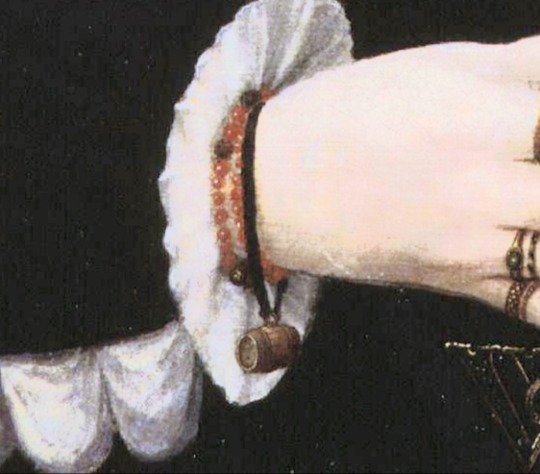
She is wearing a bracelet charm in the shape of a barrell.. :')
"Sitter: Margaret Pole, Countess of Salisbury (1473-1541), Noblewoman. Sitter associated with 2 portraits.
Artist: Unknown.
This portrait: The identity of the sitter in this portrait is not certain, but is traditionally thought to be Margaret Pole, Countess of Salisbury. The honeysuckle blossom has connotations of love and faithfulness, and the tiny barrel charm may be an allusion to the execution of her father George, Duke of Clarence, who was apparently drowned in a butt of malmsey wine (sweet wine imported from Greece)."
#Margaret Pole#Countess of Salisbury#george duke of clarence#william shakespeare#richard plantagenet#george plantagenet#Edward IV#Richard III#the white queen#wars of the roses#medieval era#Lancastrian#yorkist
14 notes
·
View notes
Text
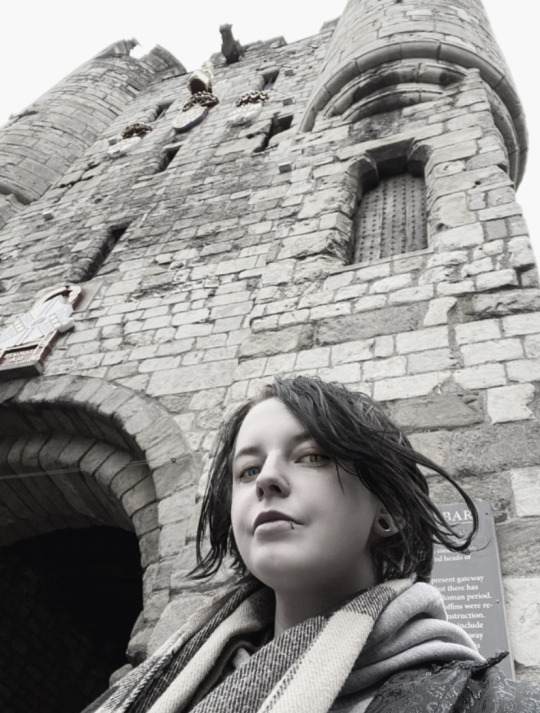


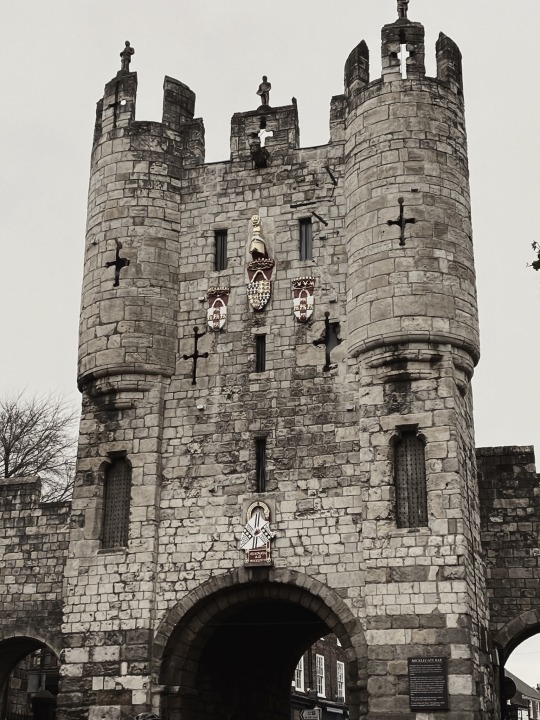



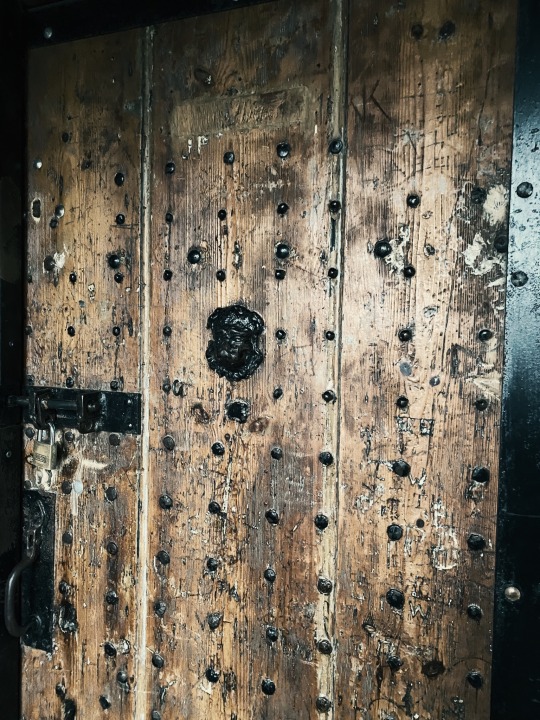
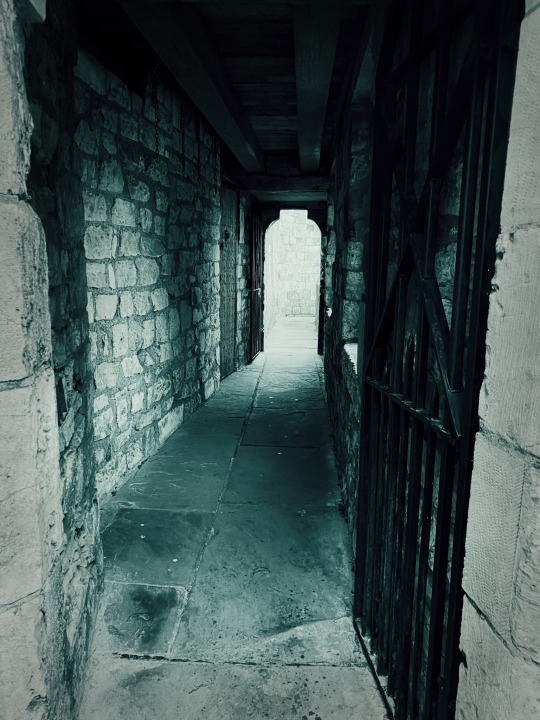

I didn’t manage to cosplay Richard iii (the version of Richard in Requiem of the Rose King) to pay homage upon the place his head was displayed as a rebel and traitor within his own home, York, fuelled with obscene rumours to the point where it was said he was in his parents womb for 2 years and a demonic monster over his body, and it was believed, over trying to rule during the War of the Roses.
Amongst downfalls, rumours are spread to ready a more secure a more loved position and angelic assumed appearance for the ones taking over as not to allow for a mutiny essentially and uproar against the new ones replacing them to take over, and cover ups to present a new line as Good, and only Good for the people.
It is said he obviously had his wrongs, but comparably it was better to a lot during that time of who was veering for power.
There’s a lot of false poison placed as fact, much which was never proved, and much which was just obvious bull now we look at it these days, and this was done to remove the return of certain families during War which threatened those who wanted to have their status.
The utmost end point is to secure a throne, and people will do absolutely anything.
This place is known as the Micklegate Bar, many people have passed beneath it and many heads have been presented upon it, it is the southern entrance to York.
I made it here, and I’m glad. A rich piece of history of a truly awful time upon these islands.
#richard plantagenet#richard iii#king richard iii#micklegate bar#war of the roses#battle of bosworth#city of york#yorkshire#Yorkshire history#York history#history#listed building#Yorkist dynasty#my photography#my photos#my face#requiem of the rose king#bara o no souretsu#baraou no souretsu#aya kanno#anime#historical anime#historical manga
35 notes
·
View notes
Quote
Henry VII was not waging a campaign to limit the local power of the nobility. The number of noblemen had been dwindling over the last decades, and Henry, like Edward IV, made most of his new creations at the lowest level of the peerage, creating barons rather than dukes and earls. But this probably reflects Henry’s sense of what nobility properly entailed, rather than any desire to diminish the importance of the aristocracy. Henry, far from being the grey bureaucrat of popular imagination, had a highly developed respect for the aristocratic and chivalric virtues. In this context it is significant that he was never prepared to ennoble his financial adviser, Reynold Bray, although Bray’s landed possessions could have sustained the elevation.
Rosemary Horrox, “Yorkist and early Tudor England” | The New Cambridge Medieval History Vol. VII c.1415-c.1500
35 notes
·
View notes
Text
i've decided that my new tumblr niche is going to be pretending to woobify richard the third until that somehow catches on (note to self: find out how to become viral) and this hellsite fills up with wars of the roses discourse and epically long posts about who really killed those kids and actually no if you weren't an ABLEIST SHITLORD you would appreciate him like we do over here on the moral high ground.
#LANCASTRIANS DNI!!!!!#yorkists can reblog this but don't add any LIES about how richard did anything wrong in his life ever#george duke of clarence stans STAY IN YOUR MALMSEY WINE BARRELS. sorry your lane. i mean your lane. STAY IN YOUR LANE.#friendly reminder that nobody SAW him kill them kids and around here people are INNOCENT UNTIL PROVED GUILTY IN A COURT OF LAW#anyway i'm off to email the Richard III Society with a link to tumblr so GET READY FOR THE INFLUX OF RIGHTEOUSNESS!!!#history stuff#fanwars of the roses#(see what i did there aren't i clever that's how you know i must be right about that sweet sweet regicide my fave definitely didn't commit)#(BUT YOU KNOW WHO DID? HENRY FUCKING TUDOR. I HATE HIM SO MUCH I'M GLAD HE'S DEAD YEAH I SAID IT I'M GLAD!!!)#i can think of at least two women we can refer to as “THAT BITCH” see this fandom has everything you could ever need!
13 notes
·
View notes
Text

Great east stained glass window of Ripon Cathedral, North Yorkshire, England
#cathedrals#ripon#north yorkshire#England#interiors#ceilings#stained glass#beautiful spaces#holy places#anglophilia#yorkist til i die
4 notes
·
View notes
Text
The North at the beginning of the War of the Roses!

So apparently there is a guy who's not shy at making maps.
It's a nice map of the northern lordship before the war of the Roses. Well, not the complete North as it is only Northumberland, Yorkshire, and Durham. The North has a more clear pattern and arrangement of lordship that was more compact and consistent than the scattered holdings of southern lords and gentry.
As we can see, the Percies have a very compact group of lordships. in Northumberland, even with the losses of the 1403-5 rebellion.
The two other big lords of the north are the bishop of Durham and the Duke of Lancaster. The former wields palatine privileges which make him quasi-independent from the king's justice system. The latter is also a palatinate but a personal property of the monarch since 1399. As the dukedom of Lancaster own lands in almost every English county, it holds significant assets in neighboring lordships through the castle of Pontefract and its lordship.
Other honors are of course represented. The rich honor of Richmond, who's often de facto cut in parts to different renters or recipients of royal patronage, or Skipton who is the prime property of the Clifford family (Lancastrian supporters).
A very noteworthy landowner is the duke of York. As one of the biggest feudal lords in England, he actually owns very little in the north and it's shown on the map. The House of York's might come from its Marches and Welsh lordships, not their northern dukedom which was poorly endowed. Richard's surprise inheritance in 1415 of the dukedom of York after his uncle's death at Agincourt didn't in fact carry that many lands. His uncle Edward was also heavily indebted. What transformed Richard's prospects and might was the Mortimer inheritance from his other uncle, Edmund, in 1425.
#Maps#of England#this one made my day#war of the roses#York and Lancaster#other details I didn't tell#but Richmond was a Tudor asset in 1452#and if you add lordships owned by lancastrians vs lordships owned by yorkist#then yup#the north was overwhelmingly lancastrian
20 notes
·
View notes
Text
"[Elizabeth Woodville's] piety as queen seems to have been broadly conventional for a fifteenth-century royal, encompassing pilgrimages, membership of various fraternities, a particular devotion to her name saint, notable generosity to the Carthusians, and the foundation of a chantry at Westminster after her son was born there. ['On other occasions she supported planned religious foundations in London, […] made generous gifts to Eton College, and petitioned the pope to extend the circumstances in which indulgences could be acquired by observing the feast of the Visitation']. One possible indicator of a more personal, and more sophisticated, thread in her piety is a book of Hours of the Guardian Angel which Sutton and Visser-Fuchs have argued was commissioned for her, very possibly at her request."
-J.L. Laynesmith, "Elizabeth Woodville: The Knight's Widow", "Later Plantagenet and Wars of the Roses Consorts: Power, Influence, Dynasty"
#historicwomendaily#elizabeth woodville#my post#friendly reminder that there's nothing indicating that Elizabeth was exceptionally pious or that her piety was 'beyond purely conventional'#(something first claimed by Anne Crawford who simultaneously claimed that Elizabeth was 'grasping and totally lacking in scruple' so...)#EW's piety as queen may have stood out compared to former 15th century predecessors and definitely stood out compared to her husband#but her actions in themselves were not especially novel or 'beyond normal' and by themselves don't indicate unusual piety on her part#As Laynesmith's more recent research observes they seem to have been 'broadly conventional'#A conclusion arrived at Derek Neal as well who also points out that in general queens and elite noblewomen simply had wider means#of 'visible material expression of [their] personal devotion' - and also emphasizes how we should look at their wider circumstances#to understand their actions (eg: the death of Elizabeth's son George in 1479 as a motivating factor)#It's nice that we know a bit about Elizabeth's more personal piety - for eg she seems to have developed an attachment to Westminster Abbey#It's possible her (outward) piety increased across her queenship - she undertook most of her religious projects in later years#But again - none of them indicate the *level* of her piety (ie: they don't indicate that she was beyond conventionally pious)#By 1475 it seems that contemporaries identified Cecily Neville as the most personally devout from the Yorkist family#(though Elizabeth and even Cecily's sons were far greater patrons)#I think people also assume this because of her retirement to Westminster post 1485#which doesn't work because 1) we don't actually know when she retired? as Laynesmith says there is no actual evidence for the traditional#date of 12 February 1487#2) she had very secular reasons for retiring (grief over the death of her children? her lack of dower lands or estates which most other#widows had? her options were very limited; choosing to reside in the abbey is not particularly surprising. it's a massive and unneeded jump#to claim that it was motivated solely by piety (especially because it wasn't a complete 'retirement' in the way people assume it was)#I think historians have a habit of using her piety as a GOTCHA!' point against her vilification - which is a flawed and stupid argument#Elizabeth could be the most pious individual in the world and still be the pantomime villain Ricardians/Yorkists claim she was#They're not mutually exclusive; this line of thinking is useless#I think this also stems from the fact that we simply know very little about Elizabeth as an individual (ie: her hobbies/interests)#certainly far less than we do for other prominent women Margaret of Anjou; Elizabeth of York;; Cecily Neville or Margaret Beaufort#and I think rather than emphasizing that gap of knowledge her historians merely try to fill it up with 'she was pious!'#which is ... an incredibly lackluster take. I think it's better to just acknowledge that we don't know much about this historical figure#ie: I do wish that her piety and patronage was emphasized more yes. but it shouldn't flip too far to the other side either.
22 notes
·
View notes
Text
the problem with the white queen is that our main characters consistently falls into this trap a lot of historical domain characters do where they immediately start disliking and distrusting someone who’s done them no wrong and hasn’t given enough reason for that dislike or mistrust, because the people writing the story know that they’ll eventually become rivals/adversaries/enemies
it was a huge problem in ‘memoirs of cleopatra’ where cleopatra goes from liking octavian to hating him the second caesar dies even tho he’s done nothing to engender that hatred and they share similar values for the first year afterwards, all because margaret georges knows that eventually they’ll be enemies and go to war that will end in cleopatra’s death, and it’s a MASSIVE problem with the white queen where elizabeth, our literal protagonist, is an ass to everyone for no reason just because philippa gregory and emma frost know that eventually they’ll be on opposing sides, which means that every action taken against her by warwick or george or richard feels justified because she’s acting out against them for no reason and being a total bitch who pits them against her with her own attitude
#personal#it's weird because gregory is such a clear unabashed yorkist#who thinks that in an ideal world richard and elizabeth of york should have gotten married (ugh hurl and vomit)#but she makes elizabeth the most unsympathetic protagonist in a period drama#and the tudors was a show with henry the fucking eighth as a main character#like this isn't even a sunne in splendour thing where the writer clearly hates everyone who isn't richard or his immediate circle#they are TRYING to make elizabeth the best woman to have ever lived and yada yada#but it's not working she's a nightmare and the writing is weird#(the stupid 'how dare you call elizabeth who we've seen practicing witchcraft a witch' plot is just)#(why is our main antagonist in the objective moral right here we've SEEN that she's a witch)#anyway this show sucks i'm literally just here for aneurin barnard and some mindless fluff while i gif and make lunch
4 notes
·
View notes